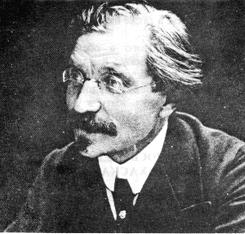
Word of the Day: Babble
Paul Schleifer
Babble is a flexible word. As a verb, it can be intransitive (used without an object) or transitive (used with an object). It means “to utter sounds or words imperfectly, indistinctly, or without meaning; to talk idly, irrationally, or foolishly; to make a continuous murmuring sound”: I hate it when you babble; or, I hate it when you babble nonsense (www.dictionary.com). We probably hear the former use more than the latter, and often we follow the intransitive with some sort of prepositional phrase instead of an object: Daniel liked to babble on and on about the brilliance of Dr. Who and how the show was based on “real” science (https://wordsinasentence.com/babble-in-a-sentence/).
Babble can also be a noun meaning 1. “inarticulate or imperfect speech” or 2. “foolish, meaningless, or incoherent speech; prattle” or 3. “a murmuring sound or a confusion of sounds (www.dictionary.com). According to www.etymonline.com, the verb appeared in English in the 13th century, from “babeln ‘to prattle, utter words indistinctly, talk like a baby,’ akin to other Western European words for stammering and prattling (Swedish babbla, Old French babillier, etc.) attested from the same era (some of which probably were borrowed from others), all probably ultimately imitative of baby-talk (compare Latin babulus ‘babbler,’ Greek barbaros ‘non-Greek-speaking.’” The OED, which also has the etymological information, also adds this: “Compare also the name of Babel (see Babel n.), which, although etymologically unrelated, may have been associated with the verb in later use.”
So the “ba” is an early sound made by young humans, and then by a process linguists call reduplication it is repeated, in this case with a slight alteration in the second half. Then, in another linguistic process called either functional shift or conversion, the verb babble becomes the noun babble. According to English Language and Linguistics Online (http://www.ello.uos.de/field.php/Morphology/ConversionOrFunctionalShift):
“By Conversion we understand derivation of a new lexeme from an existing one without a specific morphological marker indicating the change of word class and meaning.”(Kortmann 2005, 103)
As Kortmann points out, the word itself does not change although it shifts into another word category and therefore experiences a change of meaning. Due to this apparent lack of change, linguistis also refer to conversion as zero derivation.
The most productive form of conversion occurs within the three following word-class changes:
- noun > verb
-
- e.g. butter, google, mail, ship
- adjective > verb
-
- e.g. better, clean, empty, open
- verb > noun
-
- e.g. desire, guess, love, smell
On this date in 1882, Tsar Alexander III enacted the May Laws, proposed by his minister of internal affairs, Nikolai Ignatyev. These laws, meant to be temporary but, as so often happens with government rules, lasting 30 years, put severe restrictions on Russian Jews. “Jews were banished from all rural areas and towns of less than ten thousand people, even within the Pale. Strict quotas were placed on the number of Jews allowed into higher education. As formulated by Konstantin Pobedonostev, the Russian statesman and anti-Semite, they were designed to “cause one-third of the Jews to emigrate, one-third to accept baptism, and one-third to starve”. These laws remained in quasi-effect until 1914 and provided the impetus for migration to America as well as expanded interest in the settlement of Eretz Israel (http://www.jewishhistory.org.il/history.php?id=4650).
The “Pale” referenced was the Pale of Settlement, an area in western Russia in which Jews were allowed to reside. “However, most Jews were excluded from residency in a number of cities within the Pale as well. A limited number of Jews were allowed to live outside the area, including those with university education, ennobled, members of the most affluent of the merchant guilds and particular artisans, some military personnel and some services associated with them, including their families, and sometimes the servants of these” (https://en.wikipedia.org/wiki/Pale_of_Settlement). This Pale, which began in 1791, ended with the onset of World War One and, finally, the Russian Revolution.
And for those who love musical theater, The Fiddler on the Roof takes place in the Pale of Settlement around 1905, during the period when the May Laws were in effect. Based upon stories by Solomon Naumovich Rabinovich, better known as Sholem Aleichem, Fiddler shows how anti-Semitism affected Jews in the Russian Pale.
Of course, when we hear the arguments of anti-Semites, even today they sound like babble.
The image is a photo of Sholem Aleichem, Yiddish author known for his stories of Jewish life.